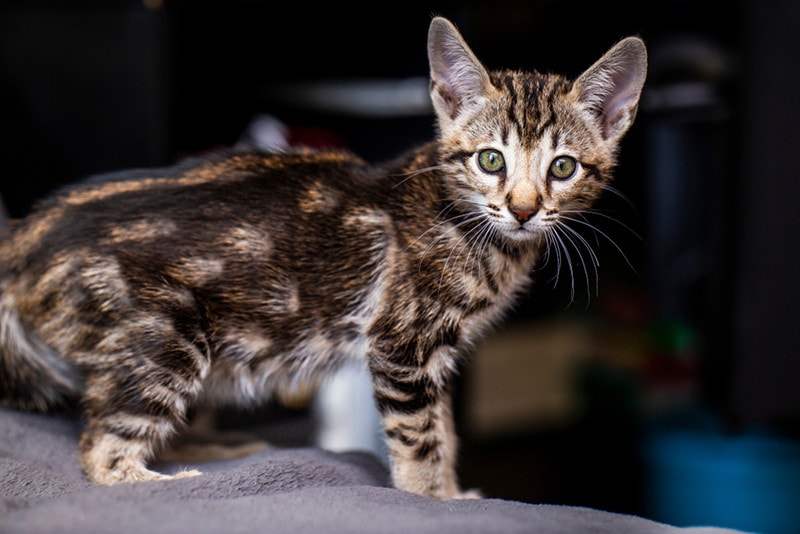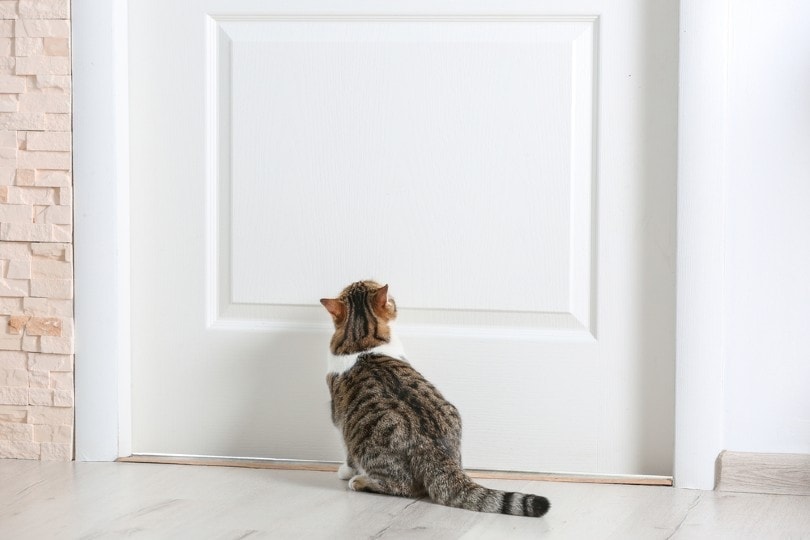Can Cats Drink Soy Sauce? Vet-Reviewed Facts & Health Risks
Updated on

We humans have an incredibly varied diet. We get to eat foods of all kinds, flavors, and textures that stimulate our senses in a new way. On the flip side, our cats eat some pretty basic food. It’s common for pet owners to want to share their “people food” with their cats to offer them some variety, but it’s not always the best idea.
Today, the question is: Can cats drink soy sauce?
Soy sauce is not toxic to cats, and a very tiny amount won’t harm them, but any significant amount can be extremely harmful to your cat.The main risk is that soy sauce is very high in sodium, which can disrupt the delicate balance of salts and water in your cat’s body.
Furthermore, there are some other risks from your cat consuming soy sauce. We’ll go over all these risks and answer a few related questions that may be burning in your mind.
Risks of Your Cat Drinking Soy Sauce
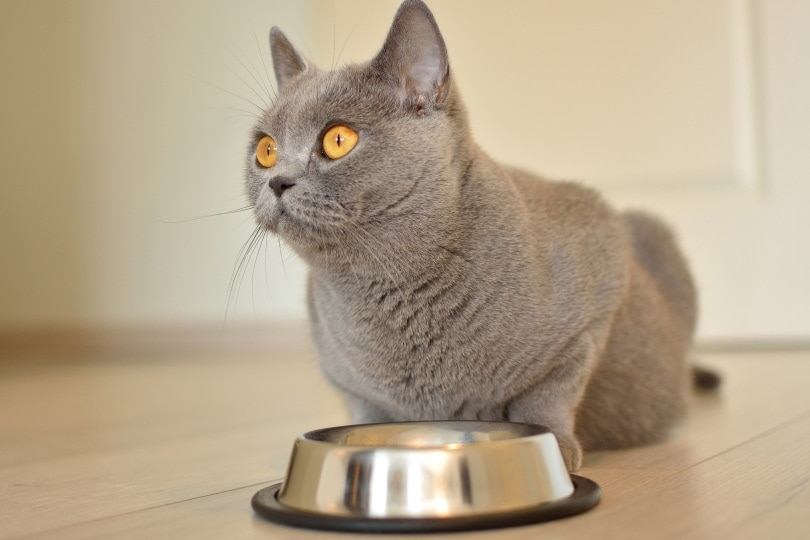
Sodium Poisoning & Dehydration
Soy sauce is extremely high in salt. One tablespoon can contain just under 900 milligrams of sodium. Salt itself is not toxic to cats. In fact, cats require a small amount of salt in their diet to stay healthy. Their minimum sodium dietary requirement is established at 10.6 milligrams per kilogram of bodyweight (BW) per day. That is why sodium is present in commercial cat diets. At the same time, cats don’t need to be given any supplementation because if they are fed a diet that is balanced and complete, they are getting all the nutrients they need in this way.
Salt poisoning can occur with approximately 2-3 grams per kilogram of BW. By these numbers, even a tablespoon of soy sauce can potentially contain enough salt to cause harm to your cat, especially if they don’t have access to water.
Sodium poisoning occurs from sodium ions drawing out moisture from cells, resulting in dehydration; severe cases may cause severe neurological damage.
- Salt lamps
- Saltwater
- Baking soda
- Playdough
- De-icing salts
- Bath salts
- Table salt
Allergies
Regular brands of soy sauce are reasonably limited in ingredients, and the main ingredients are soybeans, wheat, salt, and water. The fermentation process of the soybeans and wheat creates the distinctive flavor of soy sauce.
Wheat is behind animal proteins as common food allergies. It is often found in many commercially produced cat diets, and it can be considered a “filler ingredient” added to bulk up a diet.
My Cat Ate Soy Sauce, What Should I Do?
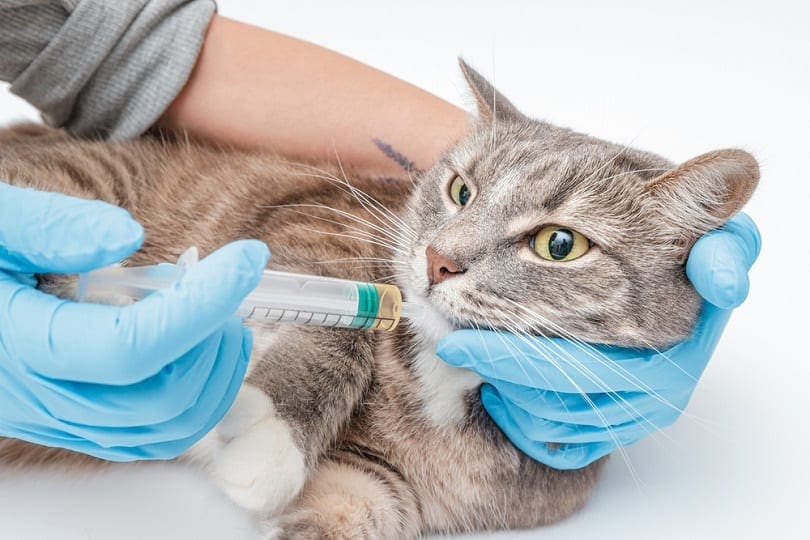
A slight lick of soy sauce is not going to do a great deal of harm to your cat. But if your cat has consumed a large amount of soy sauce, especially if they didn’t have access to water, you may be feeling a great deal of concern.
If you are worried about your cat’s health, your first action should be to call your veterinarian for advice. Monitor your cat closely for any signs of illness, including:
- Lethargy
- Lack of appetite
- Vomiting
- Diarrhea
These are general signs of illness, not an exhaustive list. You know your cat better than anyone, so you will be able to tell if something is not right, and as soon as you notice it, make sure to contact your vet for advice.
As you monitor your cat, ensure they have access to plenty of fresh, clean drinking water. In the future, ensure that your food, including soy sauce, is not accessible to your cat. Don’t leave food out on the counter, and ensure all ingredients are secured.
Do Cats Like Soy Sauce?
Each cat has individual preferences. One cat may turn their nose up at soy sauce, while another might be highly attracted to it and attempt to drink as much as they can. There is no evidence that cats enjoy and look for salty foods.
Unlike omnivorous dogs, cats are complete carnivores. Cats associate saltiness and savory flavors with food sauces; as such salty foods may be very appealing, even if they are bad for them! This is thought to be why our cats like to lick us after sweating or crying; they enjoy the salty taste.
Cats are obligate carnivores, and they are social animals in the right circumstances. Cats in the wild congregate in groups. Your cat at home sees you as part of their pack, and as such, they tend to be curious about what you are eating. They might see you as another (enormous) cat, like them, and think whatever you’re consuming must be safe.
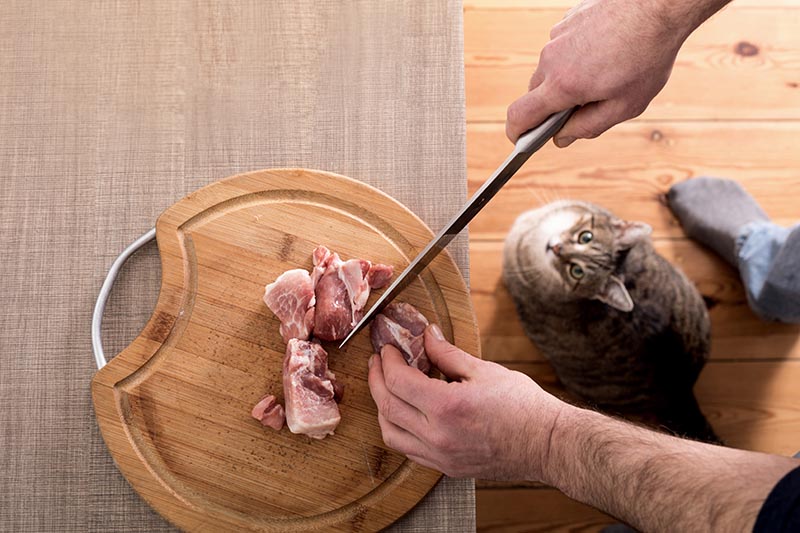
Final Thoughts
It’s tempting to want to share the foods that we eat with our cats. We consider them family and always want to make them happy. But sometimes, you must deny them the things they think they want to keep them healthy, and soy sauce is one of those things! Cats are obligate carnivores and need a nutritionally balanced diet. A commercial diet will cover all your cat’s needs, or you can opt to create a homemade meat-based raw diet under the guidance of a vet.
Featured Image Credit: koosen, Shutterstock




